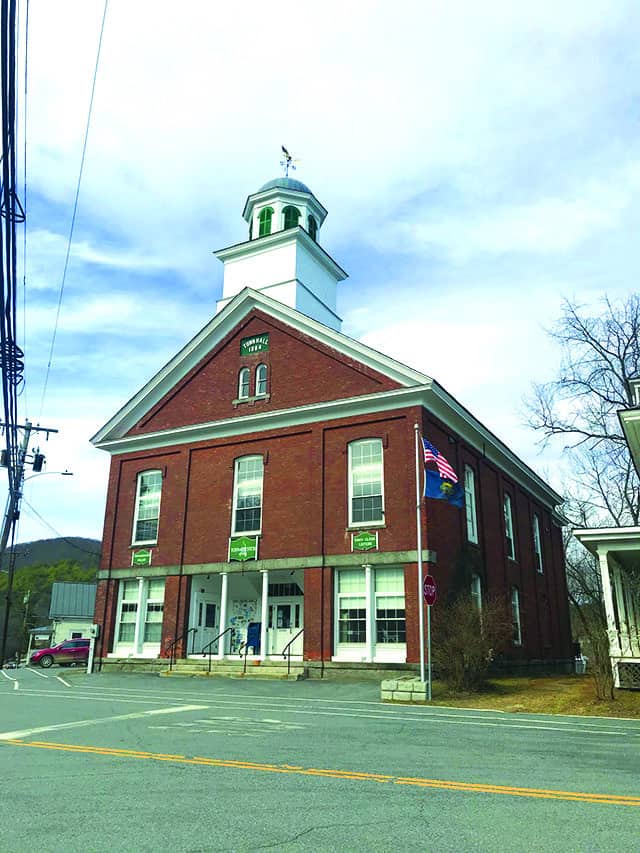CHESTER, Vt. – At their Wednesday, Aug. 2, meeting, the Chester Selectboard revisited the topic of short-term rentals (STR), a contentious issue facing a number of Vermont communities. Chester passed an STR registry ordinance in December 2022, and has been collecting data since then, in an effort to determine how best to address the increasing number of STRs in light of the housing shortage facing the town.
“There’s a lot of concern from citizens in this town that short-term rentals are…taking up housing from people that live in this area,” said Selectboard Chair Arne Jonynas, “and now that we have this information, I want to have a discussion about…how we want to proceed.”

Planning Commission Chair Hugh Quinn informed the board that, while Chester had passed a STR registry that was intended to take effect April 1, the registration of STR units had yet to begin, due to the inability of the company contracted to create the registry to appoint a project manager to the project. As such, data about STRs in Chester was currently based on information pulled from websites such as AirBnB, not on actual registrations by property owners. There were currently 64 STRs in Chester identified in this manner, though Quinn did note that the number can fluctuate seasonally. He also told the board that a project manager had been assigned to the Chester STR registry project as of the meeting, though zoning administrator Preston Bristow explained that the letters informing property owners of the need to register with the town “may not go out until November,” with a registration deadline around the end of the year.
A number of Chester residents expressed their worries that the number of STRs was changing the nature of Chester as a community, with effects ranging from empty houses with strangers coming and going at random, to the effect on school systems and local non-tourism related businesses, to pricing longtime residents or those looking to move back to the area in which they were raised out of the housing market by forcing them to compete with money from those purchasing properties exclusively for the purpose of renting them out. “Look what happened to Ludlow,” said resident Jan Moot, “they’ve been bought out. There’s hardly and Ludlow residents…it’s sad. I hope we don’t get to that.”
The board wrestled with how to proceed, with several members voicing support for potentially limiting the number of unhosted STRs – those which do not have the owner or a caretaker living onsite. The central issue was whether or not it would be possible to set the limit lower than the current number of STRs already in the town, and the resulting fallout from such a decision, including the possibility of a lottery to determine which STRs are allowed to continue operating.
Selectboard member Peter Hudkins suggested that limits should also be proportional to the neighborhoods or areas they are in, noting that simply setting a cap at an arbitrary number throughout the town could still lead to certain neighborhoods – such as the Stone Village – becoming disproportionately composed of STRs. “If you just said ‘we’re going to limit [STRs],’ but there’s already five [in one neighborhood]…you’ve created a neighborhood of rentals,” Hudkins said.
Ultimately, while the board agreed that they did want to take action beyond their original registry ordinance, they determined that that would like to wait until Bristow met with the new registry project manager on Friday, Aug. 4, and would place the discussion on their next agenda for follow-up once that meeting had taken place.
The board then also heard updates regarding damage and repairs from the July 10 floods. Town manager Julie Hance noted that Chester has now had their first applicant briefings with FEMA, having officially applied for public assistance.
“Right now…we probably have about 82 projects,” Hance told the board, explaining that each project must be documented and shared with FEMA via their applicant portal. She also told the board that, while FEMA’s reimbursement portion would be 75%, another 12.5% was available from the state if Chester met certain emergency and mitigation requirements, leaving the town paying for 12.5% of the damages. “That doesn’t necessarily mean that we will be outlaying 12.5% of our cash,” Hance explained. “In Irene, the town was out nothing…I am hopeful that this will be the same.”
Hance also told the board that the Chester Reservoir Dam was “undersized,” as was the spillway, and that, while FEMA would fund repairs of the dam, a project would need to be engineered to increase the size of the dam and spillway, as well as all culverts downstream, to accommodate the potential for increased flow from the larger spillway. Hudkins asked what the dam was used for, and was told by Hance that, while the reservoir created by the dam was once used as a water supply, it was now primarily used for recreation. “If we’re going to make a million dollar project out of recreation,” Hudkins replied, “maybe the way to approach this is to take the dam out.”
“A properly operating dam is a flood control item,” Jonynas added. Hance determined to include a cost-benefit analysis in the project scope when the time came to get the project underway.
The Chester Selectboard will next meet Sept. 6, at 6:30 p.m., in the Chester Town Hall.